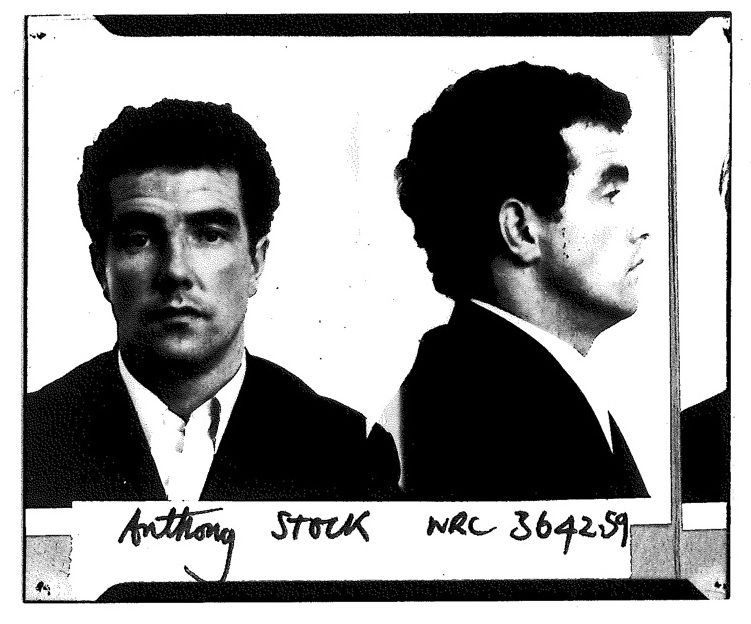A posthumous attempt to overturn a conviction in a case which raises serious concerns about the Court of Appeal’s approach to miscarriages of justice was launched at an event in Parliament earlier this week.
Tony Stock died on November 29 2012. He spent 43 years fighting to clear his name in a case that was described by the Labour MP for Huddersfield Barry Sheerman on Monday as ‘one of the most outrageous miscarriages of justice in modern times’.
The MP was speaking at a launch of The first miscarriage of justice: the amazing and unreported case of Tony Stock, by JusticeGap editor Jon Robins. The book is part of an effort to get Stock’s conviction overturned.
- You can read about the Tony Stock case here on www.thejusticegap.com
- The first miscarriage of justice was published this week by the Waterside Press
Following a three-day trial in July 1970, Tony Stock was sentenced to 10 years for his part in a violent armed robbery in Leeds city centre.
‘It’s a shocking story in any number of ways,’ said author Jon Robins. ‘It involves disturbing allegations of police corruption as well as organised crime. But the most shocking aspect of all is what this story reveals about our criminal justice system – in particular the reluctance of the Court of Appeal to satisfactorily deal with what we would argue is a self evident injustice.’
Tony Stock always insisted he was celebrating his 30th birthday with his wife and four children on January 24, 1970 at the time the police claimed he was committing the robbery. His daughter, Twinnie who was six years old in 1970, and son, Steve, who was two, were at the launch with their families. ‘I didn’t really know my dad when I was growing up,’ Steve said.
‘The first six years of my life he was doing a 10-year stretch for an armed robbery. Life was hard for us growing up. We all knew he didn’t do it. But it’s still broke up the family. My mum was left to look after us all. But life didn’t move on for Dad.’
Steve Stock
Glyn Maddocks, Tony Stock’s solicitor for 20 years, paid tribute to a man ‘small in stature, but very big in dogged determination’. ‘Sadly, Tony knew that time was running out for him and he wanted above all else, to achieve justice before he died. He didn’t achieve this. His fight for justice must and will continue.’
Maddocks said that the case raised serious questions about the way the criminal justice system dealt with miscarriage cases.
‘The question is why has the Court of Appeal turned the case down on four separate occasions? Sadly, the answer goes to the very heart of the problem with miscarriage of justice cases. That is the Court of Appeal’s lack of willingness to engage with – or even recognise – the problem and its often intransigent, arrogant and – dare I say – obdurate view that it knows best. The court is constrained by its own previous decisions, however wrong they may have been and, knows that it’s almost impossible for it to be challenged when it gets a case as wrong as it has done with Tony Stock.’
Glyn Maddocks
Maddocks will be working with Ralph Barrington, a former head of Essex CID on an application back to the Court of Appeal. If successful it would be an unprecedented third referral. Barrington, who was investigations adviser at the Commission for 13 years.
‘Jon Robins’ book is not the end of this story. The detailed research for the book has shone a new and more searching light on everything that has happened since 1970 and I believe there is enough new material to make another make another application to the CCRC and hopefully get this case back to the Court of Appeal for a fifth time. Sadly any success we might have will have come too late for Tony, but we hope that the fact that we have not given up on him will be of some comfort to his family.’
Ralph Barrington
Laurie Elks, a former CCRC commissioner, asked to say a few words – which he has asked to be made available as a public document – see below. He argued that if the CCRC was to fail to refer the case then the family could judicially review the commission to force a referral. ‘If on the other hand, the judiciary closes ranks and decides that it is expedient to perpetuate this miscarriage of justice, then it will be a matter for politicians and legislators to resolve,’ he said.
Laurie Elks on the case of Tony Stock
Laurie Elks was a founding member of the Criminal Cases Review Commission and author of Righting miscarriages of Justice? Ten years of the Criminal Cases Review Commission (published by JUSTICE 2008)
Jon’s new book – and this discussion about Tony Stock’s case – calls into question the effectiveness and integrity of the criminal appeal process.
When Mr Stock was convicted in 1971 there appeared to be a strong case again him. Eyewitness evidence of Mr Wilson; identification evidence of Tesco staff who said they observed Mr Stock casing the joint; incriminating admissions; paraphernalia from the robbery found by Wetherby racecourse, an alibi which must have appeared unbelievable in the face of all this evidence.
Over the years, following investigation by the CCRC and others, this evidence has peeled away to the point that there is no reliable evidence against Mr Stock at all.
As a former member of CCRC, I tend to recoil from the formulation “X is innocent”. It has been used too often, and not always…how shall I put it, in the most clear-cut cases.
So I will be more forensic and say that – on the basis of evidence now available – there is no basis to convict Mr Stock. Indeed, I do not think that the case as it now stands would be fit to put before a jury.
Without going into detail, I accept that Mr Wilson, the eyewitness who confronted the robbers for a couple of seconds on a January night, still believes the person he saw was Mr Stock. But fleeting eyewitness identification is a tricky business and I am quite sure that aspects of the way that Mr Wilson was handled as a witness led him to be surer than he could ever properly have been, about the identity of the person he saw.
I repeat, no reliable evidence against Mr Stock at all, and strong evidence that others were responsible.
All this was laid out in painstaking detail in the second CCRC referral leaving no room for misunderstanding. Yet the Court rejected the appeal – why?
It is not as if the statute – Section 2 Criminal Appeal Act 1995 – is unclear:
the Court of Appeal shall allow an appeal against conviction if they think that the conviction is unsafe
In a case called Graham, which shortly followed the Act, the Court said this:
if, for whatever reason, the court concludes that the appellant was wrongly convicted of the offence charged or is left in doubt whether the appellant was rightly convicted of that offence or not, then it must of necessity consider the conviction unsafe.
So what is the problem in Mr Stock’s case? I have argued elsewhere that the Court has adopted a shabby device, which I described as “atomism” in Mr Stock’s – and some other cases. It has been Mr Stock’s misfortune that the case against him has unravelled by degrees, (and I should add, parenthetically, that it could have all come out earlier if the police investigation in the 1970s had been handled differently). Returning to the analogy of the onion, at each sitting the Court has looked at, or perhaps weighed, the onion peelings – the new exculpatory matters arising since its last hearing –and in effect snorted: that’s not much compared with the towering weight of the verdict of the jury who were certain of Mr Stock’s guilt.
Had they adopted a holistic approach and asked the correct question: are we in doubt, looking at the case in its entirety, whether Mr Stock was rightly convicted – they would have been bound to quash.
There are – small “p” – political reasons why the Court feels it needs to hold its ground in this case. I do not have time now to “go there”. I will just say that the legislation was not supposed to work like this.
What should happen now? I understand that a further application is pending. But since the last referral so comprehensively deconstructed the case against Mr Stock, I am unsure what new matters a further referral could raise. If there are no substantial new matters I feel that the CCRC might write a relatively short statement of reasons setting out:
-
- How each layer (or perhaps I should switch to the analogy of the orange and say “segment”) of the case against Mr Stock has become wholly unreliable.
- That it appears to the CCRC that there is no basis on which the Court could feel sure that Mr Stock was rightly convicted.
- But since this was all clear and manifest in the 2007 referral, which was rejected by the court, the CCRC cannot see that the real possibility test is satisfied.
And let the matter be then tested by the Administrative Court in judicial review proceedings. If the Court direct the CCRC to refer, as happened in the case of Mills and Poole,then all well and good. If on the other hand, the judiciary closes ranks and decides that it is expedient to perpetuate this miscarriage of justice, then it will be a matter for politicians and legislators to resolve.












